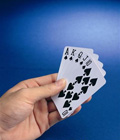澳门举行首次正式会晤调节百家乐游戏的技术标准
昨日(星期三),澳门博彩监管部门博彩监察暨协调局(DICJ)与其同行业一起举行第一个正式会议,讨论引进符合本地制定的技术标准的电子游戏和系统。
如果现有的主要赌场地区要达到这个标准,如内华达州,可能会发生很大的变化,可能会对运营商和制造商的成本造成影响。这是目前澳门陆地上与特定市场相适应的产品,或者可以说是符合制造技术能力与供应创造方面的规则。目前在澳门的一般规则是,看它是否符合澳门的规则,并与主要司法管辖区兼容。该规则的特殊情况是主要的非电子库存只有少量在澳门。
对于昨天的会议,谁也没见过博彩监察协调局的资询文件,一位业内人士告诉一些与亚洲博彩百家乐相关的信息:“它看起来非常像GLI11 [参考博彩实验室国际技术准则的最新标准]。但是,我们将交给我们的技术人员,看看是否有有什么意不一样。“
从地方来看,博彩监察协调局博彩监察协调局插槽的代表以PowerPoint演示文稿的形式和系统制造商会话。会议期间的博彩监察协调局没有问题,业界一直到10月底才做出自己的意见和陈述。在这之后,将进行1月实施的标准和为期两个月的咨询期。
经介绍,当地的电子游戏产品的技术标准与引进的电子游戏在正式监管上是不一样的。但它无疑是在这一进程中的第一个合乎逻辑的步骤。一旦技术标准已经决定,接着就是重点监管的问题,如电子表是否应被视为生活的表或“插槽”(电子博彩机)的规管来进行辩论。这是特别重要的,到2013将延长直播表,即只有3%的复合年增长率,这会一直持续到2020年。技术标准和法规,在这个意义上的技术标准阶段,可能对如何规管电子产品(从而,在那里他们属于现实行业库存的层次结构)产生影响后与对方产生联系。
澳门目前没有形成自己的一套电子游戏和系统的技术标准。相反,在它的工作原理上,如果一个产品被宣布在技术标准方面已经符合在领先的国家如内华达州或新南威尔士的标准之一,那么它会被视为在澳门兼容的原则。然而即使根据该系统,博彩监察协调局也为自己保留在逐案基础上的产品可以进行审查的权利。行业方面,当地的技术标准可以加快批准设备特别是创新技术进入澳门市场。
译文
Macau’s gaming regulator the Gaming Inspection and Coordination Bureau (DICJ) yesterday (Wednesday) had its first formal meeting with the industry to discuss introducing locally-formulated technical standards for electronic games and systems.
If the resulting standards differ significantly from those in existing major casino jurisdictions—such as Nevada—then there could be cost implications for the operators and the manufacturers. That’s in terms either of adapting products currently on Macau floors, or in terms of creating manufacturing and technical compliance capacity with the supply industry that is market-specific. At present in Macau the general rule is if it's compliant in major jurisdictions it's compliant for Macau. The exception to that is the tiny amount of mainly non-electronic inventory in Macau [such as some tables] that pre-dates market liberalisation in 2002.
One industry source—not present at yesterday’s meeting but who has seen the DICJ document presented for consultation told Inside Asian Gaming: “It looks pretty much like GLI11 [a reference to the latest iteration of the Gaming Laboratories International technical guidelines]. But we will be handing it to our technical people to see if there are any surprises in there.”
The session—between the DICJ and representatives of the slot and systems manufacturers—took the form of a PowerPoint presentation from the DICJ on the aim of local standards. Although no questions were taken by the DICJ during session, the industry has been given until the end of October to make its observations and representations. That will be followed by a two-month consultation period with the aim of implementing the standards in January.
Introducing local technical standards for electronic gaming products is not the same as introducing formal regulation of electronic games. But it is arguably the first logical step in that process. Once technical standards have been decided, then key regulatory issues such as whether electronic tables should be regulated as live tables or ‘slots’ (electronic gaming machines) could come up for debate. That’s particularly important in the context of the extension of the live table cap beyond 2013—whereby only a compound annual growth rate of 3% will be allowed until 2020. Technical standards and regulation have a relationship to each other in the sense that what’s decided at the technical standards stage could have an impact later on how electronic products are regulated (and thus where they stand in the hierarchy of local industry floor inventory)。
At the moment Macau doesn’t have its own set of technical standards for electronic games and systems. It works instead on the principle that if a product has already been declared compliant in terms of technical standards in one of the leading jurisdictions, such as Nevada or New South Wales, then it will be considered compliant in Macau. Even under that system however, the DICJ has reserved for itself the right to review products on a case-by-case basis. The hope on the industry side is that local technical standards could speed decisions on approvals regarding equipment—especially innovative technology—coming into the Macau market.
- 上一篇:美式足球比赛的投注成本
- 下一篇:下注
相关推荐
随机专题



 您现在的位置:
您现在的位置: 
 沉迷赌球挪公款175万 高富帅自毁前程
沉迷赌球挪公款175万 高富帅自毁前程 现金的棋牌游戏网上牛牛技巧
现金的棋牌游戏网上牛牛技巧 竞猜足彩技巧大集合
竞猜足彩技巧大集合 德州扑克游戏术语
德州扑克游戏术语


